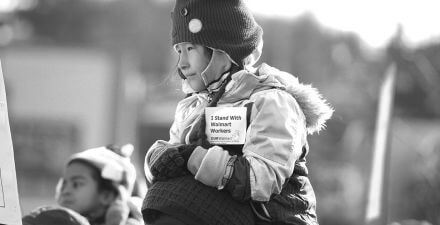Bring the Households Back In: The Effect of Poverty on the Mobility of Low-Wage Workers to Better Wages
082621-WP-Bring the households back in-Schultz
Authors:
Michael A. Schultz, University of Texas at Austin
Abstract:
Although eighty percent of low-wage workers are not in poverty, low-wage work and poverty are often conflated. I distinguish the two and investigate how household conditions affect workers’ mobility out of low-wage work. I argue households are central labor market organizations, parallel to firms, occupations, and unions in explaining labor market inequality. I define households as contested and resourced organizations. I analyze data from the Panel Study of Income Dynamics using discrete-time event history analysis. Low-wage workers in poverty in the previous year are less likely than other low-wage workers to move to better wages. I extend dynamic monopsony theory to account for household search frictions: First, workers with less resources have less to spend on job search and they may spend more resources making ends meet. Second, falling into poverty introduces new search frictions as settled patterns of household tasks are re-negotiated. My results confirm these hypotheses. Human capital differences explain about a fifth of this effect, but demographics and job characteristics explain little. Sixty percent of the effect of poverty on low-wage workers’ mobility is explained by a lack of household resources. Workers with larger income drops when falling into poverty move to better wages at lower rates.



